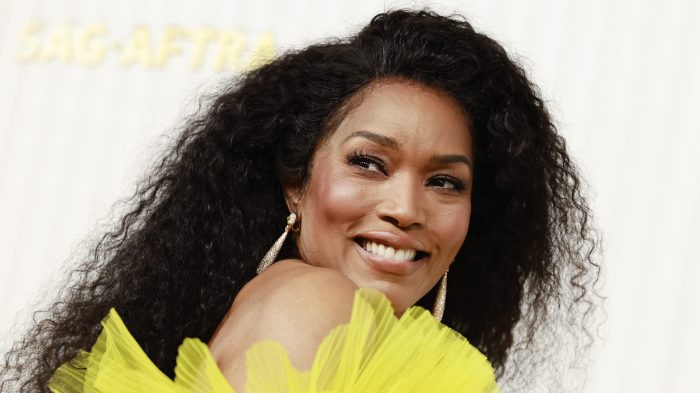What would you do after your first Oscar nomination? If you’re Angela Bassett, that’s an easy answer. A year after getting Oscar love for portraying Tina Turner in What’s Love Got to Do with It, Bassett went weird and took the lead role in Kathryn Bigelow’s Strange Days.
The fact her current nomination, as best supporting actress for Black Panther: Wakanda Forever, comes courtesy of a film adapted from a comic book typifies a career that balances sci-fi, horror, and action roles with more traditional dramatic fare. Bassett’s dedication to those genres sets her apart from her peers and provides visibility for Black women in roles they rarely see themselves.
Black women’s representation in modern-day genre film and television vastly improved from their standing in the 1990s and the infancy of the 21st century. Rather than saving the world from aliens or traveling beyond the stars, Hollywood often positioned Black women as perfunctory support roles for men who came home to a hero’s welcome. Black women in horror often cared more about their white friends than their own well-being, which became their defining character trait.
And then there’s Bassett.
Angela Bassett (left) starred with Eddie Murphy (right) in Vampire in Brooklyn.
Getty Images
After Strange Days, a sci-fi crime film in 1995, Bassett dove into horror with Wes Craven’s Vampire in Brooklyn that same year. Co-starring with Eddie Murphy in a big studio movie is already a big deal, but having Craven in the director’s chair made it an event horror fans couldn’t ignore. And in Bassett, they saw a woman not in the background but as a fully-formed lead character who played the titular vampire’s love interest without losing her agency or strength.
Before Bassett’s character Rita, the apple of a vampire’s evil eye was nothing but eye candy. Their thinly-sketched roles amounted to walking, talking psychosexual objects in a tug-of-war between two men. As Rita, Bassett went against the grain and even got the hero moment usually reserved for her male counterparts. Murphy’s name appears first on the poster, but narratively, Vampire in Brooklyn is Bassett’s movie.
Bassett’s horror devotion continued into the 2010s as part of Ryan Murphy’s American Horror Story troupe. Now, television occupies a different space in our minds than when Bassett first dabbled in comic book adaptations on The Flash in 1990. Academy Award-nominated performers showing up in living rooms across the country every week feels typical and often is expected.
But Bassett shunned stereotypical prestige roles even here and went with an FX series steeped in horror lore. For four seasons, Bassett lent her talents to several horror subgenres. As a voodoo queen, freak show performer, vampire, or even a meta-turn as a horror movie actress, Bassett put considerable weight behind roles some might think beneath her.
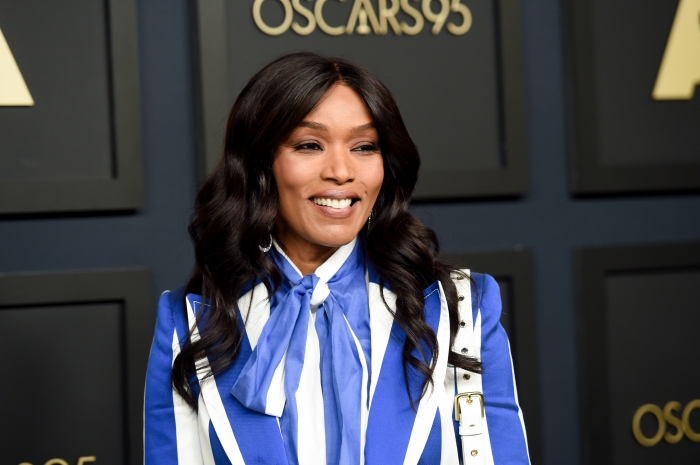 Angela Bassett at the 95th Oscars nominees luncheon held at the Beverly Hilton on Feb. 13 in Beverly Hills, California.
Angela Bassett at the 95th Oscars nominees luncheon held at the Beverly Hilton on Feb. 13 in Beverly Hills, California.
Gilbert Flores/Variety/Getty Images
“Everything about it was perfect,” Bassett said of her first season on American Horror Story and what drew her to television. “I’m available for good characters and good writing.”
Playing these characters for several hours of television rather than a couple of hours on film helped Bassett explore them beyond their tropes. Historically, a voodoo queen and a freak show performer support more straight-laced characters. For instance, Craven’s 1988 film, The Serpent and the Rainbow, treats voodoo thoughtfully and respectfully, but still paints its Haitian practitioners as mustache-twirling villains opposing the innocent white man.
Through American Horror Story: Coven, Bassett gives the usual horror baddie complexity, humanity, and interior life. Empathizing with her character Marie Laveau felt effortless, as the show depicted her working through her feelings toward witches that stemmed from America’s history with race. Bassett pulls the same empathetic magic trick for her other American Horror Story roles. At the same time, her name ensured that those who might otherwise ignore a horror show watched her work, even if they did so through partially closed fingers.
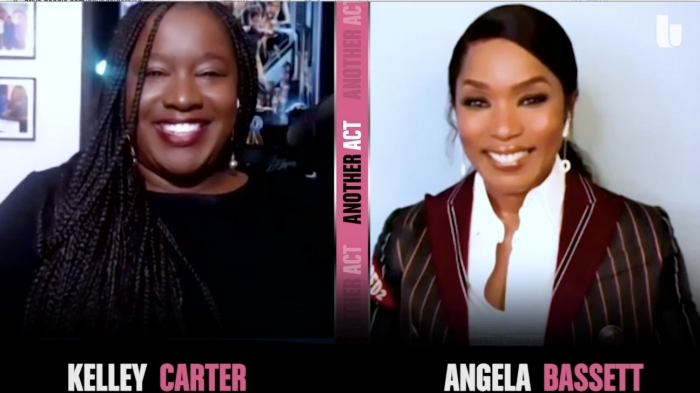 ‘Another Act’: Angela Bassett on her role in ‘Soul’ on Disney+Read now
‘Another Act’: Angela Bassett on her role in ‘Soul’ on Disney+Read now
Representation means more than taking a head count of Black performers. It’s about role diversity. Putting it into practice involves giving performers substance and showing them in all facets of life, no matter how big or small the part may seem.
Bassett illustrated this for horror audiences and those uninterested in the macabre through more easily digestible material in other genres. On the one hand, there’s Supernova, a sci-fi action film where she plays a lead role as her ship’s medical officer. And on the other hand, there’s director Robert Zemeckis’ Contact.
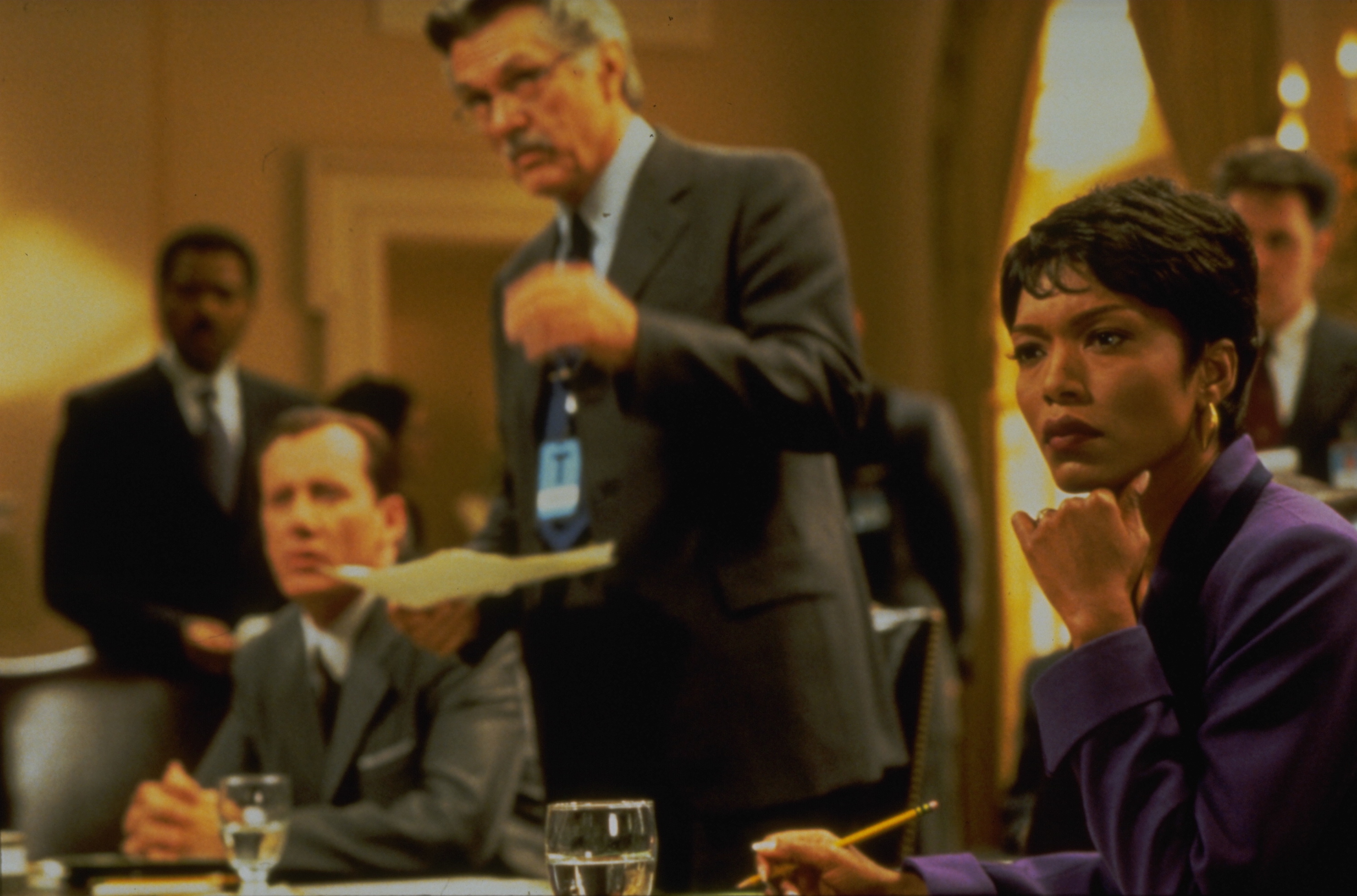 Angela Bassett stars as Rachel Constantine in the 1997 film Contact.
Angela Bassett stars as Rachel Constantine in the 1997 film Contact.
Francois Duhamel/Sygma/Getty Images
While her role in the former trumps the latter in size and screen time, her role in Contact is just as important as it relates to who shows up on screen and how. Bassett plays President Bill Clinton’s chief of staff in the 1997 film about the world’s first contact with extraterrestrial life.
Contact shows a world where a Black woman fills that position and inhabits it with just as much gravitas as a man. Bassett plays Rachel Constantine as someone who owns every room she enters while suffering very few fools. She never looks out of place leading a group of people into the unknown or ordering around the older white men who, while serving at the pleasure of the president, effectively work for her. She never raises her voice for attention, and she doesn’t illustrate dominance by beating her chest.
Bassett, who was 39 years old at the time, conveyed to every person watching that no matter who showed up with her in a scene, the authority lay in her hands. Bassett showed little Black girls — and boys — what it looks like when someone with similarly melanated skin uses that much power, uses it appropriately, and does something few thought possible.
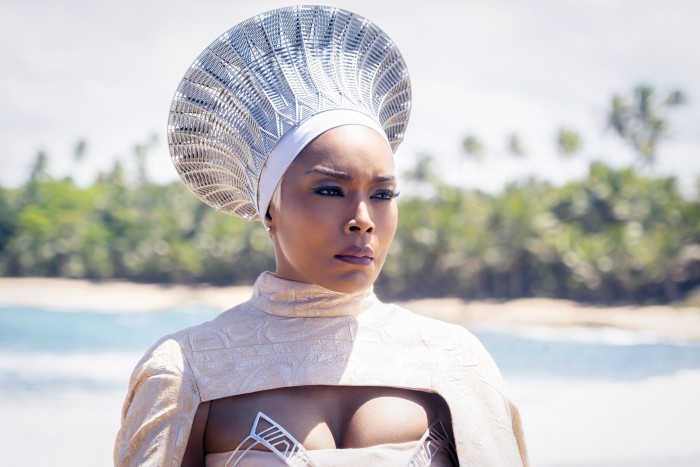 Angela Bassett in a scene from Black Panther: Wakanda Forever.
Angela Bassett in a scene from Black Panther: Wakanda Forever.
Annette Brown/Marvel/Walt Disney Studios Motion Pictures/Everett Collection
All that authority Bassett showed in previous roles paved the way for Queen Ramonda. Black Panther became a landmark cultural event partly thanks to the casting of Bassett as Wakanda’s queen. Bassett hitched her wagon to a comic book movie based on a character whose popularity at the time was nowhere near where it stands today. She recognized how important films like Black Panther are when reaching more people and how hungry Black audiences were to see themselves doing unbelievable things on the screen.
“For a movie to be so longed for and anticipated by audiences, by children, by women, it reaches out and grabs everyone,” she said to Vanity Fair in 2018. “This has to open up successes. I hope that this is a clarion call, that it’s something that continues. It’s so satisfying.”
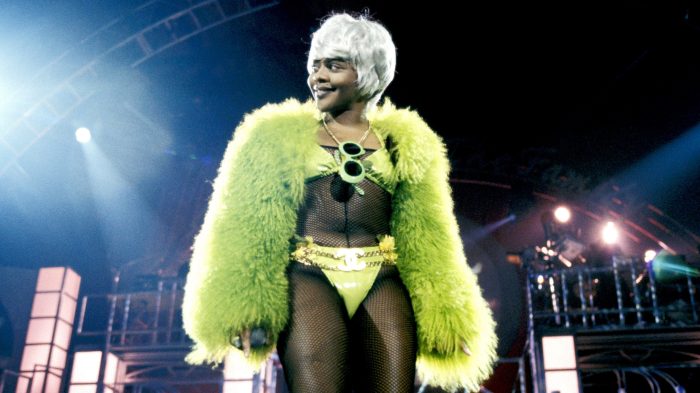 In the history of hip-hop fashion, there’s no ignoring Lil’ KimRead now
In the history of hip-hop fashion, there’s no ignoring Lil’ KimRead now
Fast-forward four years later to that film’s sequel, and Bassett did what she does best. She led a cast of Black women in Black Panther: Wakanda Forever as a grieving mother, mighty queen and protector. And, like every other genre project on her résumé, she grounded fantasy firmly in reality by baring her humanity. As a result, Black women worldwide saw themselves as a ruler, warrior, diplomat, and, once again, a person who understood that using power ineffectively is the same as not having any at all.
The chief of staff wields tremendous power and strength, so Hollywood naturally regresses to patriarchal ideals and casts men in this role. Specifically white men. Sadly, it’s also art imitating life as men exclusively populate the chief of staff clubhouse.
To some, Angela Bassett is Tina, Stella, Betty, or Reva. To others, she’s Lornette, Rita, Marie, Ramonda, or even a Transformer. Her openness to everything and love for good stories with great characters helped her find the emotional truth in worlds with superheroes, monsters, witches, and aliens. And that’s why, nearly 30 years after her first Oscar nomination, she’s back again while giving another genre the credibility and respect that comes from her name.
Yup, Angela Bassett did, in fact, do the thing.
Marcus Shorter is a communications professional and writer. When he’s not scribbling thoughts for Consequence, Cageside Seats or Bloody Disgusting, he’s getting extra nerdy about rap lyrics, politics, poetry and comic books.
